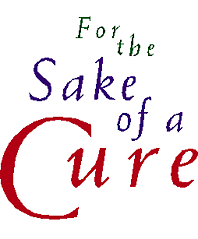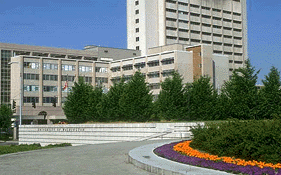

Ewan, Nelson and Castle are just three of the average 5,000 patients who visit the CRC per year. The average stay for a patient is five hours. Yet, the CRC and its satellite at Children's Hospital and Medical Center, which opened in November, are far from the kinds of places where patients feel isolated or anonymous.

"Everyone there is so professional and so caring. You can't be just a number," says Castle of her experience.
Ewan, who postpones the drive back to Spokane when he visits by staying in Seattle over the weekend, says of Hepatology Research Coordinator Kersten Beyer, "She's so upbeat, she makes me feel like I want to be a part of it."
Nelson said the trial is playing a role in how her family is coping with her condition. "They're at loose ends," she says.
Participating in a clinical trial can be a way for individuals and their families to come to terms with terminal disease, according to Clinical Nurse Specialist Andrea Bakke, who works with cancer patients in phase I and II trials at Children's. "Phase I studies can provide a little more time for people who aren't prepared for their child to die," she says.
Some families have to believe in beating the odds. "Once you've given them a shred of hope, they never let go," Bakke adds.
With or without hope, everyone's participation in a phase I, II, or III trial is a contribution to knowledge, Bakke says. Ultimately, that is something everyone can be proud of.
There are 74 clinical research centers across the country. At the UW alone there are 127 active projects, ranging from treatments for hypertension during pregnancy to HIV infection.
All 10 of the adult and pediatric beds at the CRC are inpatient beds, but they are used less and less at night. The idea of "inpatient" has changed substantially in this modern age of medicine, says CRC Director John Brunzell.
"We've shifted from long-term studies to short term as we've moved into modern medicine," he says. The methods for delivering treatment, and diagnosing it, have improved so much that the average length of stay at the center is five hours. Out of the average 5,000 patients who visit per year, just 500 stay through midnight.
Every five years, the CRC renew its grant to the National Center for Research Resources. While some projects are funded wholly by private industry, the CRC receives most of its funding in from the federal government. Last year it received approximately $2.4 million for clinical trials. The federal health agency also recently awarded the center $700,000, which the UW will match, to build one of the first gene therapy labs in the nation.
UW researchers submit their proposals for clinical trials to a CRC committee made up of 12 members. The committee reviews the proposal and then passes it on to a biostatistician. For the project to be approved, and for the trial to begin, all must agree, at least, that "this is very good science," says CRC Manager Karen Monteiro.
It's too early to tell the fate of their experiments, or the fate of these three research subjects. But for Russ Ewan, Christy Nelson, Kristin Thueringer and Connie Castle, the clinical trials at the CRC are "good" science toward the greater good of us all. * A former newspaper reporter, Will Morton is a science writer for the UW School of Medicine. He graduated from the University of Oregon in 1992.
Return to the Beginning of "For the Sake of a Cure
Send a letter to the editor at columns@u.washington.edu.